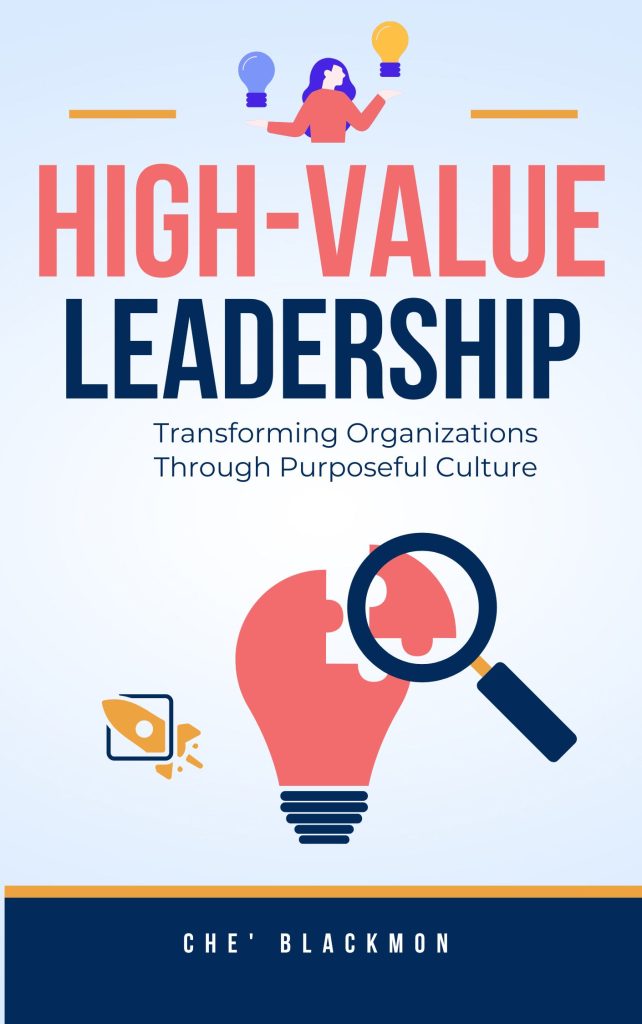In today’s rapidly evolving business landscape, technical skills and industry expertise alone aren’t enough to create transformative leadership. As I’ve observed through years of consulting and research for my books “Mastering a High-Value Company Culture” and “High-Value Leadership,” there’s a critical differentiator that sets exceptional leaders apart: emotional intelligence (EI).
The Foundation of High-Value Leadership
Emotional intelligence isn’t just about being nice or empathetic—it’s about having the awareness and capability to effectively manage both your own emotions and those of others to drive positive outcomes. In “High-Value Leadership,” I emphasize that leaders who master emotional intelligence create environments where both humans and organizations can thrive together.
The Four Pillars of Emotional Intelligence in Leadership
1. Self-Awareness
Leaders with high emotional intelligence have a deep understanding of their own emotional states, triggers, and impacts on others. They recognize how their moods and behaviors affect their teams and can regulate themselves accordingly. This self-awareness forms the bedrock of authentic leadership, allowing leaders to lead from a place of genuine understanding rather than reactive emotion.
2. Self-Management
The ability to control impulsive feelings and behaviors, manage emotions in healthy ways, and maintain composure in challenging situations is crucial. I’ve seen countless examples where a leader’s ability to stay calm during crisis situations has made the difference between team paralysis and productive response.
3. Social Awareness
Understanding others’ emotions, needs, and concerns is vital for building high-value cultures. This includes reading emotional currents, picking up on nonverbal cues, and understanding the political dynamics within an organization. Leaders who excel in social awareness can better navigate complex interpersonal situations and build stronger relationships.
4. Relationship Management
The ability to develop and maintain good relationships, communicate clearly, inspire and influence others, and manage conflict effectively is perhaps the most visible aspect of emotional intelligence. This skill directly impacts team performance, employee engagement, and organizational culture.

The Business Impact of Emotional Intelligence
Research consistently shows that leaders with high emotional intelligence create:
- Higher employee engagement and retention
- Stronger team collaboration
- Increased innovation and creativity
- Better customer relationships
- Improved financial performance
Developing Emotional Intelligence
Like any leadership skill, emotional intelligence can be developed and strengthened. Here are key strategies:
1. Practice Self-Reflection
- Take time daily to reflect on your emotional responses
- Seek feedback from trusted colleagues
- Keep an emotion journal to track patterns
2. Enhance Self-Regulation
- Develop stress management techniques
- Practice responding rather than reacting
- Learn to pause before making important decisions
3. Build Empathy
- Listen actively without jumping to solutions
- Ask questions to understand others’ perspectives
- Pay attention to non-verbal communication
4. Strengthen Relationships
- Invest time in one-on-one connections
- Practice giving and receiving constructive feedback
- Create psychological safety for open dialogue
Implementing EI in Your Leadership Practice
To begin strengthening your emotional intelligence:
- Start with honest self-assessment
- Identify specific areas for improvement
- Seek feedback from your team
- Practice new behaviors consistently
- Measure impact through team engagement and performance
The Future of Emotional Intelligence in Leadership
As organizations continue to navigate complex challenges, from remote work to rapid technological change, emotional intelligence becomes increasingly critical. Leaders who can understand and manage emotions effectively will be better positioned to:
- Guide their teams through uncertainty
- Foster inclusive environments
- Drive innovation and adaptation
- Build sustainable high-value cultures
Conclusion
Emotional intelligence isn’t just a “nice to have” leadership skill—it’s a crucial capability for building high-value cultures and driving organizational success. As I’ve documented in my books and seen firsthand in my consulting work, leaders who develop and deploy emotional intelligence create more resilient, innovative, and successful organizations.
Remember, the journey to emotional intelligence is ongoing. Start where you are, be patient with yourself, and commit to continuous growth. Your organization’s culture and success depend on it.
Looking to develop emotional intelligence in your leadership team? Contact Che’ Blackmon Consulting at admin@cheblackmon.com for customized solutions that align with your organizational goals and culture.
#EmotionalIntelligence #LeadershipDevelopment #BusinessGrowth #TeamManagement #ExecutiveLeadership #WorkplaceCulture #ProfessionalDevelopment #LeadershipSkills #BusinessSuccess #ChangeManagement


